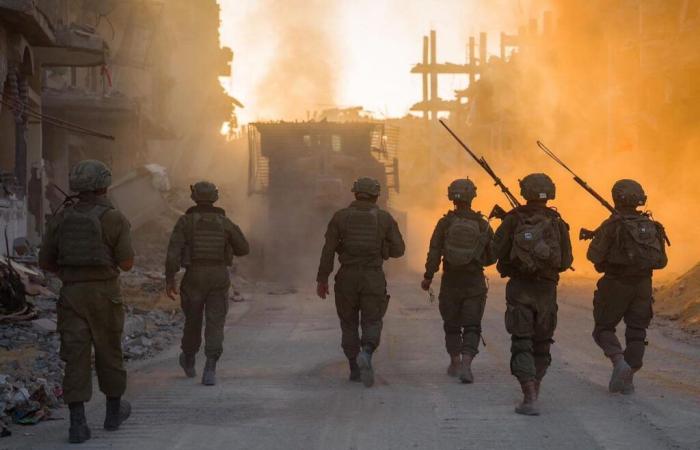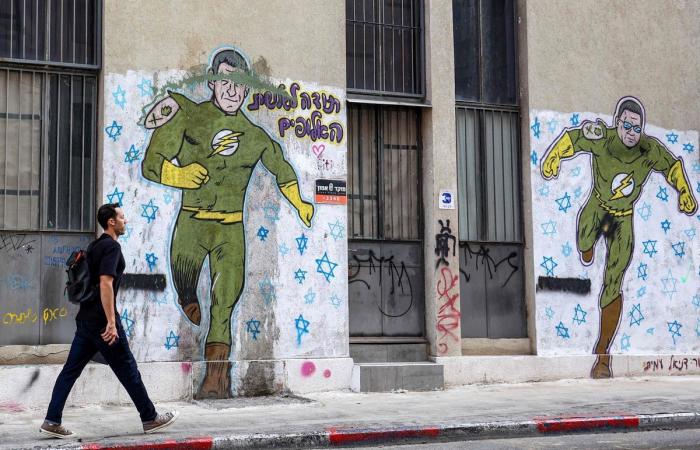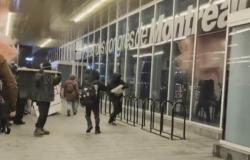War in Gaza –
“I can’t take part in this”: Israeli soldiers refuse to fight
If they responded to the mobilization in the wake of October 7, 140 soldiers refuse to continue until an agreement to free the hostages is concluded. Meet three of them.
Cécile Lemoine– Jerusalem
Published today at 6:00 p.m.
Israeli soldiers in Gaza, September 8, 2024.
AFP/Handout/ Israeli Army
Subscribe now and enjoy the audio playback feature.
BotTalk
- 140 Israeli reservists refuse to fight, denouncing the war as revenge.
- They condition their return on an agreement on the release of the hostages.
- Extreme violence against Gazan prisoners is reported in detention centers.
- The Israeli army is trying to deal with the soldiers' rebellion.
Max Kresh did not hesitate. On the evening of October 7, he was at the border with Lebanon. Michael Ofer-Ziv sat behind the screens of a control room, from where he controls the war in Gaza, while Guy (not his real name) joined the Gaza envelope before being posted at the Sde Teiman detention center.
A year later, these three reservists refuse to continue fighting. “We are committed to defending our country and saving the hostages held in Gaza, but it is today clear that the continuation of the war only delays their return in addition to putting them in danger,” they denounce in a letter signed with 130 other soldiers and made public on October 9.
They explain that they condition their return on the conclusion of an agreement to free the hostages. The document, the second of its kind since the start of the conflict, is the result of a rare distancing from a war that the three reservists met describe as “revenge”.
Trivialization denounced
“These letters do not absolve us, but they are the minimum we can do,” confides Guy. Witness to the hell of the Sde Teiman detention center, where cases of torture and abuse against Gazan prisoners have been reported, he recounts the trivialization of extreme violence for which no one is punished: “Detainees were beaten by soldiers. Some came out injured, one died. I have seen detainees have limbs amputated because handcuffs were too tight. I saw medical negligence, caregivers who did not give painkillers… Pure cruelty.”
His visit to Sde Teiman and the images from Gaza upset him: “It is no longer just a question of morally reprehensible actions, but of war crimes. I can’t take part in this.”
At this point you will find additional external content. If you accept that cookies are placed by external providers and that personal data is thus transmitted to them, you must allow all cookies and display external content directly.
Allow cookiesMore info
It is this same atmosphere of revenge that Michael Ofer-Ziv denounces. A control officer, this tech employee in Tel Aviv experienced the war through screens. From a control room, he is responsible for managing the fighting in the central Gaza Strip. With his eyes glued to the images recorded by the drones, he watches for movements and actions to update his interactive maps: “I saw the bombings and destruction live. In black and white. It seemed unreal, distant. It was by watching the international news that I understood that these strikes had consequences,” testifies the 29-year-old reservist, who says he had a breakthrough in December, after the death of three hostages killed by an Israeli sniper while they were had their arms in the air and one of them was waving a white cloth.
Impunity of soldiers
“I understood that the military pressure was endangering the hostages, and that we had created a reality where killing people who hold a white flag could happen,” laments Michael before detailing: “We simply assumed that everything individual was armed, in a form of neglect of Palestinian lives. So it creates this situation where soldiers can do whatever they want.” The reservist claims to have not seen any document relating to the rules of engagement circulating.
Michael rarely confides about his dilemmas to other soldiers. “The prevailing view was that there are no innocent people in Gaza.” In April, he signed the first refusal letter. At the time, there were 40 of them: “A year after the start of the war, there is a form of disillusionment which is gaining ground.”
Graffiti showing Israeli soldiers as superheroes, on a street in Tel Aviv, October 14, 2024.
AFP/GIL COHEN-MAGEN
Max Kresh is one of the new signatories. A rescuer in an elite unit mobilized in the Mount Hermon region, he considers himself “betrayed” by a radical government against which he has been protesting since 2023. “From the first day, Netanyahu has turned the trauma of October 7 into a weapon. He encouraged a climate of revenge and racism,” denounces this slender biology student who wrote to his commander after the death of Hersh Goldberg-Polin and five other hostages, probably executed by Hamas at the end of August: “I said that I did not want to continue to sacrifice my life for this government, a government that abandons hostages.”
Arriving in Israel in 2014, this 28-year-old American describes the revanchist atmosphere for which he also suffered: “Some said that it was a command to kill everyone in Gaza, even children, because they would become terrorists. » On October 12, he shared his thoughts on Facebook: “It is time to embrace our Arab and Palestinian neighbors. […] I am not giving up on peace.” Its text circulates in its unity. “I was criticized, ostracized and isolated, it was very difficult. The dominant discourse is that of revenge. But it was impossible for me not to express myself.”
Summoned by the government to manage the rebellion of its soldiers, the army called the signatories of the letter to ask them to withdraw their comments, and to fire them if they refused. If “refusenik” reservists may have been sanctioned in the past, this is much less the case today, explains Max: “We served. We did our duty. This is also what gives legitimacy to our words.”
Did you find an error? Please report it to us.
0 comments







